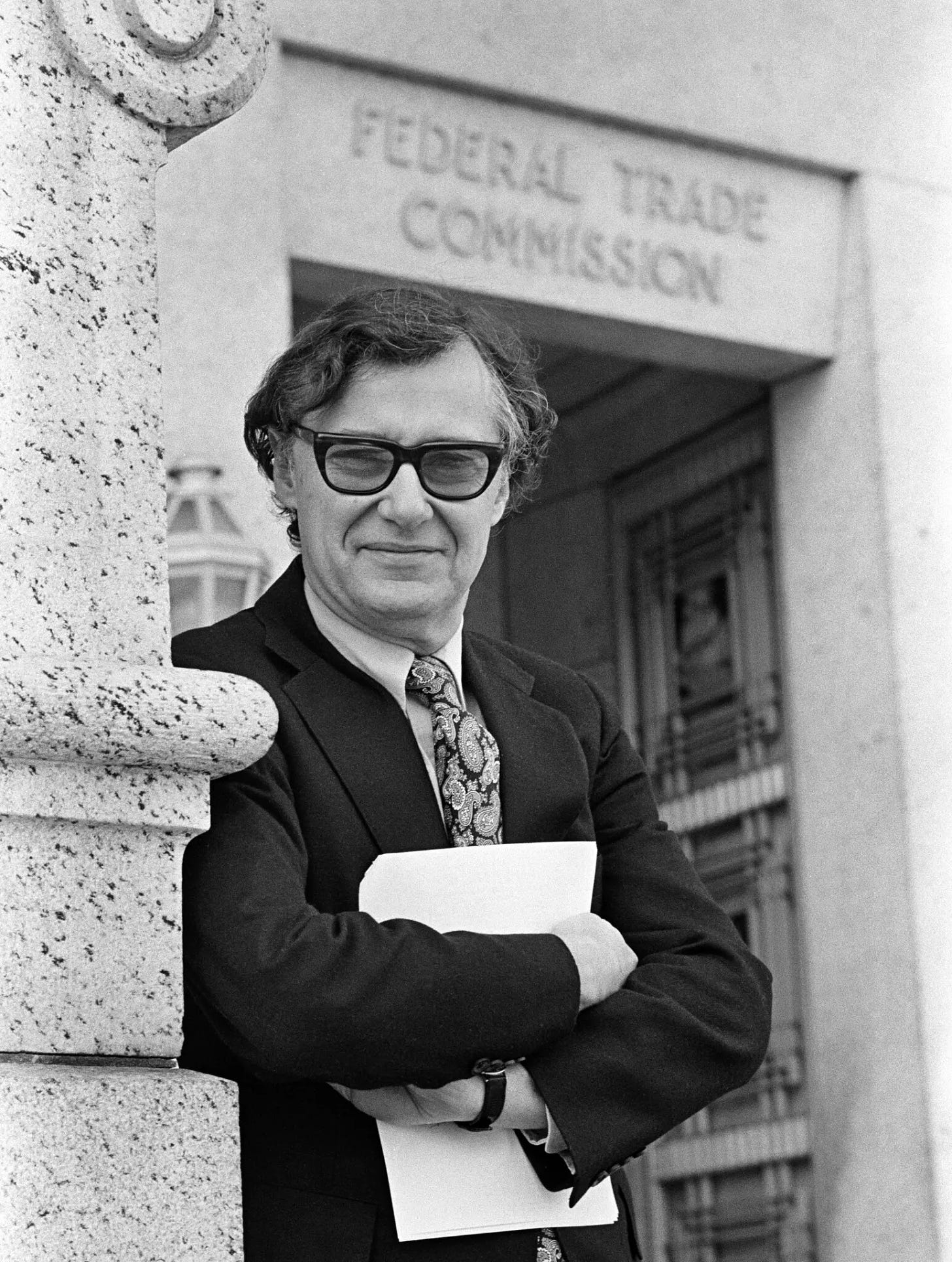While you weren't looking, the Biden administration ended involuntary servitude
That is, if the rule survives
Friends,
Have you ever been forced to sign a non-compete agreement when you started a job?
Some 30 million Americans are trapped by contracts that say if they leave their current job, they can’t take a job with a rival company or start a new business of their own. These clauses deprive workers of higher wages and better working conditions. In effect, they’re a form of involuntary servitude.
Last week, while America was fixated on Kevin McCarthy’s travails, the Federal Trade Commission proposed a sweeping new rule that would ban these non-compete agreements.
This is a big deal. The FTC estimates that such a ban could increase wages by nearly $300 billion a year (about $2,000 per worker, on average) by allowing workers to pursue better job opportunities.
Non-competes also harm the economy as a whole, depriving growing businesses of talent and experience they need to build and expand. As historian Margaret O’Mara noted (via Matt Stoller), California’s ban on non-competes was a major reason for Silicon Valley’s success.
The rule isn’t a sure thing. The public has 60 days to offer comment on it, after which a final rule could be published and then enforced some months after that. If you wish to leave a comment, here’s the link: https://www.regulations.gov/docket/FTC-2023-0007/document.
House Republicans will try to kill it. I expect corporate America to appeal it up to the Supreme Court, which is hostile to independent regulatory agencies such as the FTC. (Last June, the Supreme Court’s conservative majority ruled in West Virginia v. E.P.A. that the Environmental Protection Agency had overstepped its authority by creating emissions regulations that touch on “major questions” with big economic consequences, which should have been left to Congress. Once considered a fringe conservative position, the “major questions doctrine” is now a major litigation strategy for corporations fighting regulations.)
For several decades, non-compete agreements have been cropping up all over the economy — not just in high-paying fields like banking and tech but as standard boilerplate for employment contracts in many low-wage sectors such as construction, hospitality, and retail.
A recent study found one in five workers without a college education subject to them, disproportionately women and people of color.
Employers say they need non-compete agreements to protect trade secrets and investments they put into growing their businesses, including training workers.
Rubbish. Employers in the states that already ban them (such as California) show no sign of being more reluctant to invest in their businesses or train workers.
The real purpose of non-competes is to make it harder (or impossible) for workers to bargain with rival employers for better pay or working conditions.
As we learn again and again, capitalism needs guardrails to survive. Unfettered greed leads to monopolies that charge high prices, suppress wages, and corrupt politics. As Adam Smith, the putative godfather of conservative economics, put it in The Wealth of Nations: “People of the same trade seldom meet together, even for merriment and diversion but the conversation ends in a conspiracy against the public, or in some contrivance to raise prices.”
America once understood the importance of fighting monopolies. The presidential election of 1912 was dominated by the question. Woodrow Wilson created the Federal Trade Commission to save capitalism from the depredations of powerful corporations and “robber barons” that had turned the economy of the Gilded Age into vast monopolies, fueling unprecedented inequality and political corruption. But as the FTC began prosecuting giant corporations, the robber barons saw the agency as a major threat — and did what they could to strip it of its powers.
In 1976, when I ran the policy planning staff of the FTC, the agency again began cracking down on corporations under its aggressive chairman, Michael Pertschuk, who had been appointed by Jimmy Carter. (Pertschuk died just weeks ago.)
Corporate capitalists were so unhappy with the FTC under Pertschuk that they tried to choke off the agency’s appropriation, briefly closing it down in 1978. But Pertschuk didn’t relent. He (and I) left the agency when Ronald Reagan appointed a new chairman, who promptly defanged it.
Now, under its new Biden-appointed chair, Lina M. Khan, the FTC is again being the activist agency that progressives sought in 1914 and Pertschuk brought back to life in 1976.
The FTC’s new proposed rule banning non-compete agreements marks the first time since Pertschuk headed the FTC that the agency has issued a rule prohibiting an unfair method of competition.
As the old saw goes, history never repeats itself but it does rhyme. So I wouldn’t be surprised if the new radical-right Republicans now in control of the House tried to pull off a stunt similar to what the House tried in 1978. (The U.S. Chamber of Commerce calls the FTC’s proposed rule “blatantly illegal.”) More generally, as I noted above, the radical-right Supreme Court has signaled it will attack the constitutionality of independent regulatory agencies such as the FTC.
So beware.
In the meantime, kudos to Biden, Lina Khan (and her fellow commissioners Rebecca Kelley-Slaughter and Alvaro Bedoya), and to the FTC for protecting American workers and economic competition — and thereby protecting American capitalism from the depredations of untrammeled greed.
**
This is a reader-supported newsletter focused on economic and political power. Please consider a paid subscription.





We are currently repeating living in "the economy of the Gilded Age". I started my career in corporate America in the late 1970's at a well run, Fortune 500 company with a supportive boss & mentor-specializing in employee & executive compensation. Attended many conferences where I saw you speak Mr. Reich. My company paid for my MBA, provided expanded growth & development into other areas of expertise & was paid a good salary with great benefits. I started my executive career here & moved to other companies & industries. I was very lucky to have had my career during the next 20 years. I continued at an an executive level and saw concerning changes in the corporate world over the mid 1980's-2000's. Something was happening to destroy the working world & only in recent years have I understood what happened. I hope the FTC is successful in defeating the NCA's.
I do not recognize the world we live and work in today at all. We are in a sad state in our country & our younger generations are struggling to survive, as well as so many other people. I hope some miracle changes our political system to where those elected serve those they are elected to represent. Our democracy is hanging by a thread ! Thank you for your hard work in sharing your thoughts with so many people- there is hope for change.
Never agree to sign a NCA it. All the knowledge you have gatthered working in a particular industry, is your main asset when looking for another job. Your knowledge is valuable for the new party. It happened to me when I applied for a transfer within the Company to an attractive central location for my frequent travelling. Rather than flying for 14 hours to reach the region I was responsible for, the maximum time from that location was under 3 hours and I could spend the weekends at home. It was refused 3 times.
Then luckily I was approached by a headhunter for a top job, directly reporting to the board of directors of a major industry, though it would involve possible more travelling all over the world.
Nevertheless I filed my request for the 4th time and I informed my Co that a "no" would mean I would be leaving.
Is it in the same industry?
I confirmed.
They responded that the NCA would not allow me to take that job.
I requested them to show the agreement I had signed. No NCA was mentioned.
Within three months I landed at my new preferred location where I worked for the next 17 years.